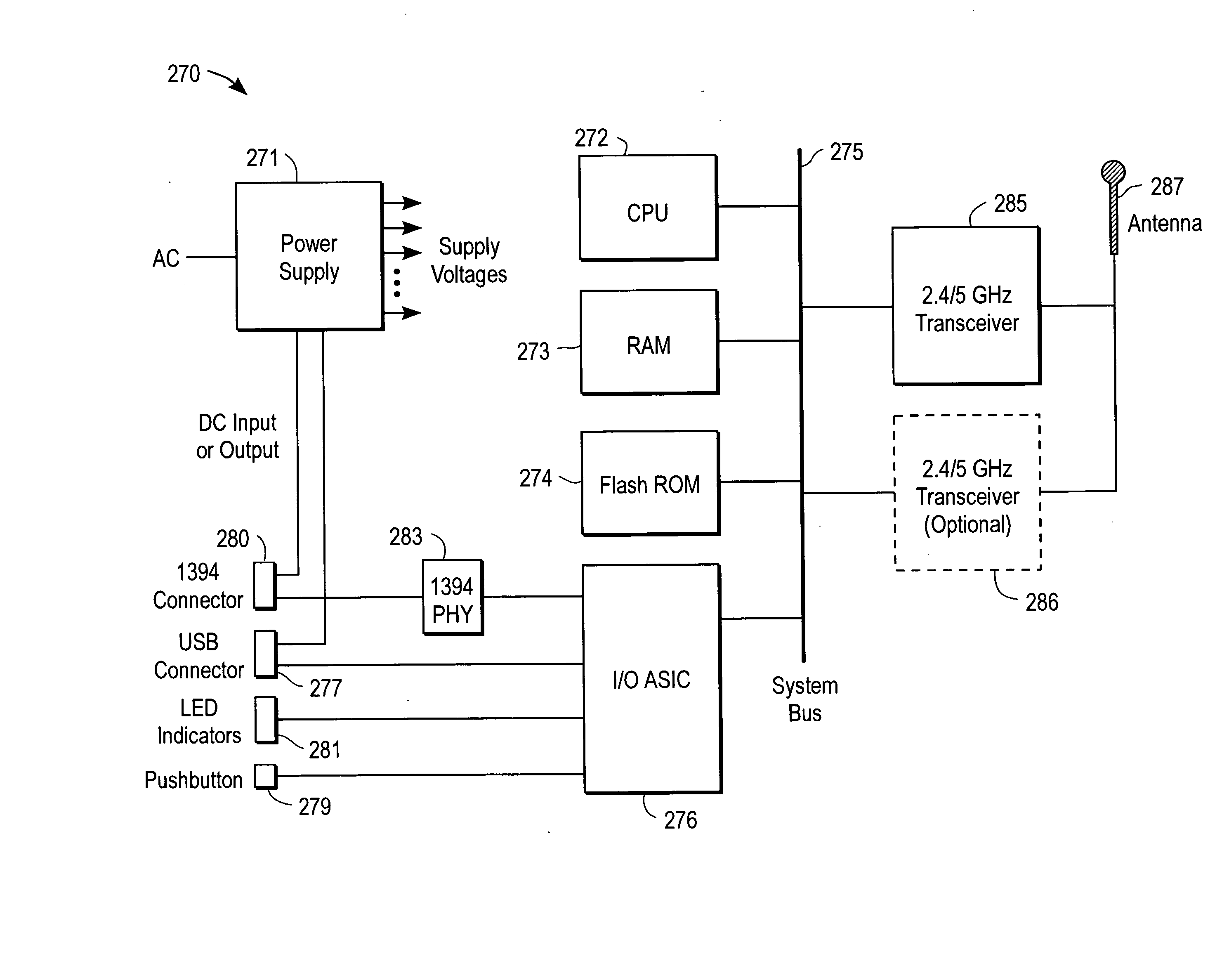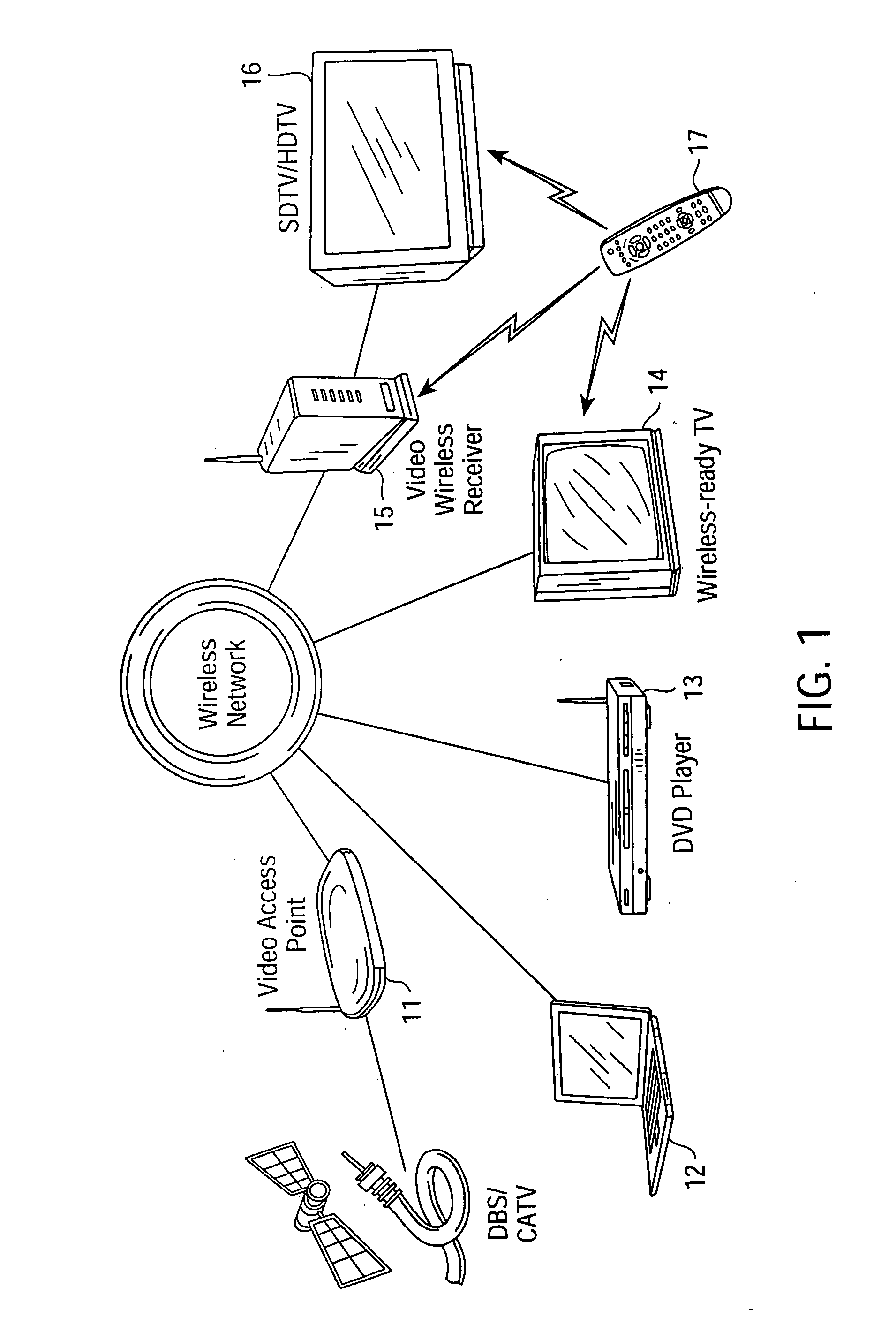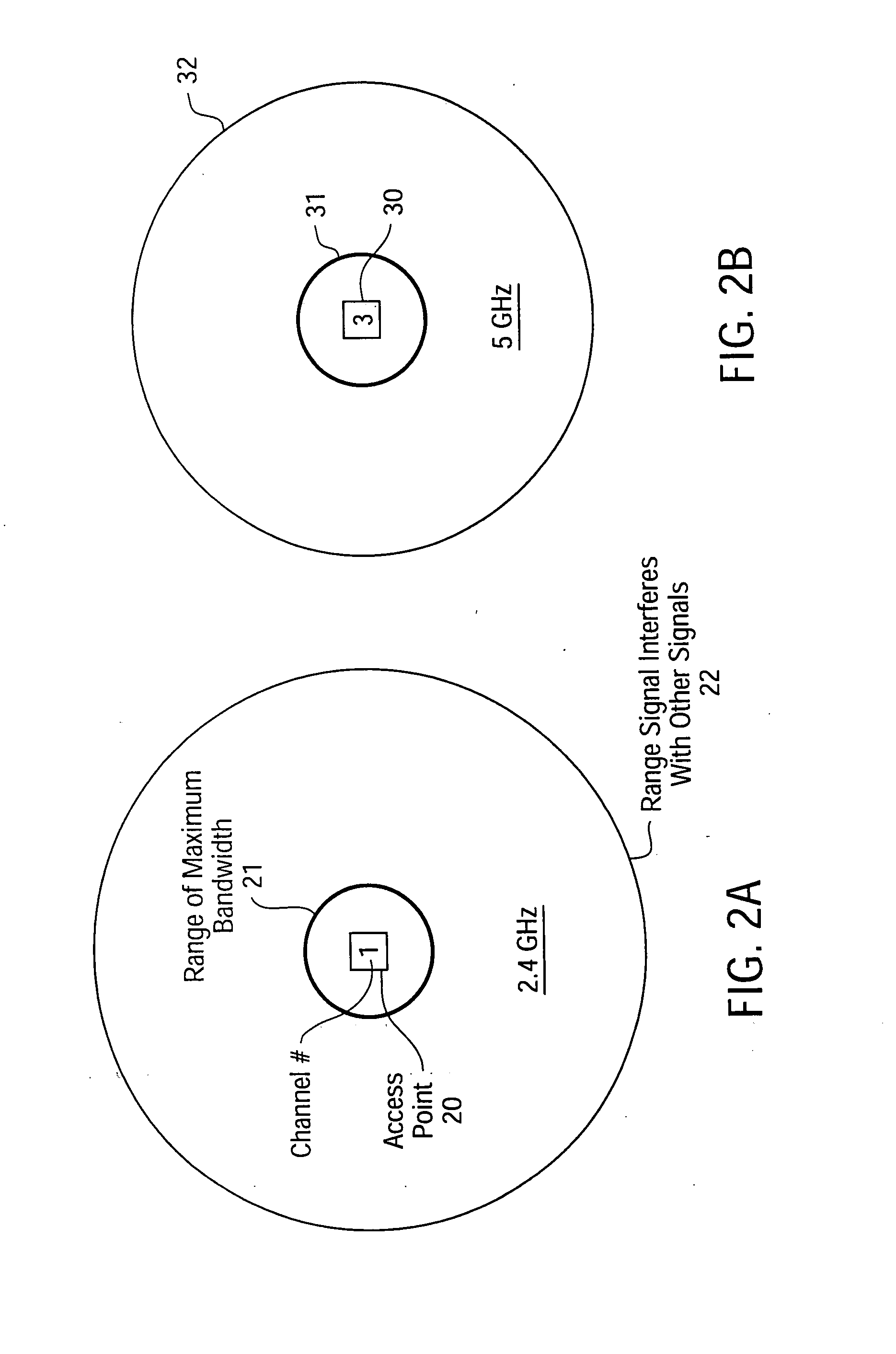Single transceiver architecture for a wireless network
a single transceiver and wireless network technology, applied in the field of wireless networks, can solve the problems of choppy video image, more problematic transmission of high-bandwidth video programs, and one of the most unreliable of all the networking options available for home media networks
- Summary
- Abstract
- Description
- Claims
- Application Information
AI Technical Summary
Benefits of technology
Problems solved by technology
Method used
Image
Examples
Embodiment Construction
[0055] The present invention is a wireless local area network (WLAN) that utilizes cellular techniques to extend the range of transmission without degrading bandwidth. The wireless network of the present invention is thus ideally suited for transmitting video programs (e.g., digitally-encoded video broadcast services, pay-per-view television, on-demand video services, etc.) throughout a house or other building, thereby creating a “media-live” environment.
[0056] In the following description numerous specific details are set forth, such as frequencies, circuits, configurations, etc., in order to provide a thorough understanding of the present invention. However, persons having ordinary skill in the communication arts will appreciate that these specific details may not be needed to practice the present invention. It should also be understood that the basic architecture and concepts disclosed can be extended to a variety of different implementations and applications. Therefore, the fol...
PUM
 Login to View More
Login to View More Abstract
Description
Claims
Application Information
 Login to View More
Login to View More - R&D
- Intellectual Property
- Life Sciences
- Materials
- Tech Scout
- Unparalleled Data Quality
- Higher Quality Content
- 60% Fewer Hallucinations
Browse by: Latest US Patents, China's latest patents, Technical Efficacy Thesaurus, Application Domain, Technology Topic, Popular Technical Reports.
© 2025 PatSnap. All rights reserved.Legal|Privacy policy|Modern Slavery Act Transparency Statement|Sitemap|About US| Contact US: help@patsnap.com



